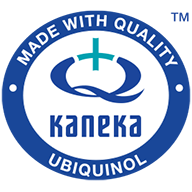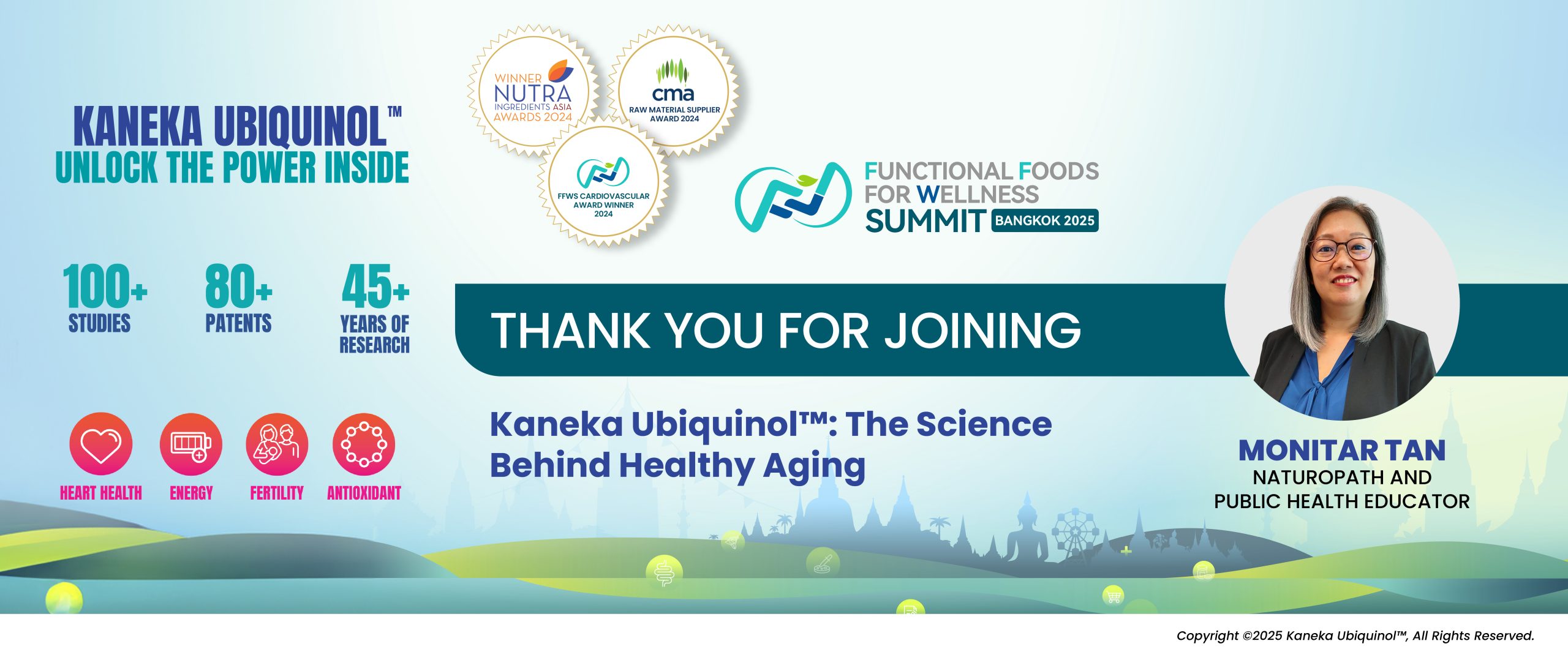5 top tips to run fast and longer
Jun 2018Recent Article
Follow our simple ways to help you get into your stride
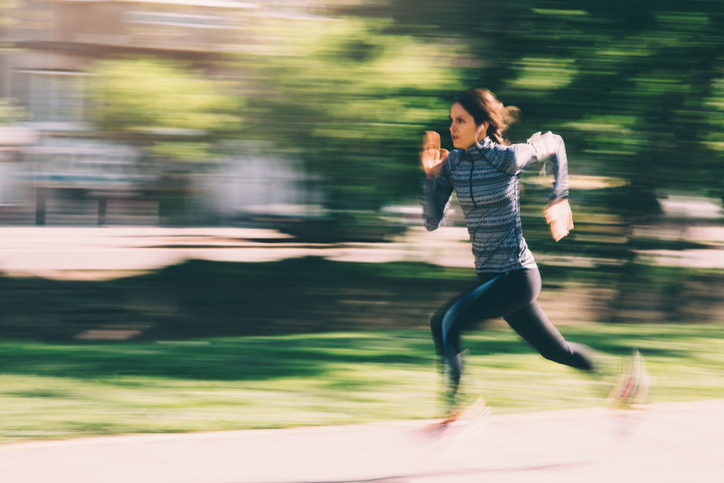 1. Change your technique
1. Change your technique
Your posture when you run is just as important as your speed. Imagine that a thread is pulling the top of your head upwards – this will stop you sinking in to your hips. Also focus on your shoe strike. That means that you should land on your foot mid-foot, not on your heel. Landing on your heel may incur joint injury and slow you down.[i]
2. Go faster… then slower
Try a little intermittent training – such as going faster for 30 seconds, then slower for 30 seconds. This can help you recover quicker, which ultimately improves your overall performance. Just six sessions of this technique may be enough to improve your personal best time.[ii]
3. Balance it out
If you’re a runner you may not balance out your activity with other exercises, such as yoga, or swimming. By combining yoga with another form of workout, which strengthens your mental and physical resilience, you’ll be rewarded with more muscular tone and energy as well as an improved and resilient nervous system
4. Add some weight
A backpack, or weight vest, will help your body work harder. Make sure you’re carrying the right amount: use a weight that’s equal to about 10 per cent of your total body weight.
5. Supplement your diet
A new study has found that athletes who supplement their diet with Ubiquinol may help to reduce the depletion of the antioxidant CoQ10 (which typically occurs during exercise) and could even improve performance on the track and field. CoenzymeQ10 (CoQ10) helps our body function correctly, and in this particular study, could improve your speed on the race track. Ubiquinol is found naturally in foods such as red meat, spinach, sardines and wholegrains, however in order to receive the minimum required amount each day, athletes would need to eat up to 3.5kg of red meat, 5.7kg of chicken or 50 cups of spinach daily.
Taking a supplement is an efficient way to help restore healthy levels of Ubiquinol in the body and support optimal energy levels, and help to reduce levels of oxidative stress in athletes.
Always read the label. Use only as directed. If symptoms persist consult your healthcare professional.
- Orlando, P., Silvestri, S., Galeazzi, R., Antonicelli, R., Marcheggiani, F., Cirilli, I., Bacchetti, T., Tiano, L. Effect of Ubiquinolsupplementation on biochemical and oxidative stress indexes after intense exercise in young athletes. Redox Report, Communications in Free Radical Research. 2018; Volume 23, Issue 1, pg 136-145.
- Alf D, Schmidt ME, Siebrecht SC. Ubiquinol supplementation enhances peak power production in trained athletes: a double-blind, placebo controlled study. Journal of the International Society of Sports Nutrition. 2013;10:24.
- Sarmiento, A., Diaz-Castro, J., Pulido-Moran, M., Moreno-Fernandez, J., Kajarabille, N., Chirosa, I., Guisado, I. M., Javier Chirosa, L., Guisado, R. and Ochoa, J. J. (2016), Short-term ubiquinol supplementation reduces oxidative stress associated with strenuous exercise in healthy adults: A randomized trial. BioFactors, 42: 612–622.
[i] https://www.ncbi.nlm.nih.gov/pmc/articles/PMC5473370/
[ii] https://journals.lww.com/nsca-jscr/Fulltext/2018/03000/Six_Sessions_of_Sprint_Interval_Training_Improves.5.aspx
You can share this by:
Keep up-to-date with Ubiquinol News
Ubiquinol Headlines
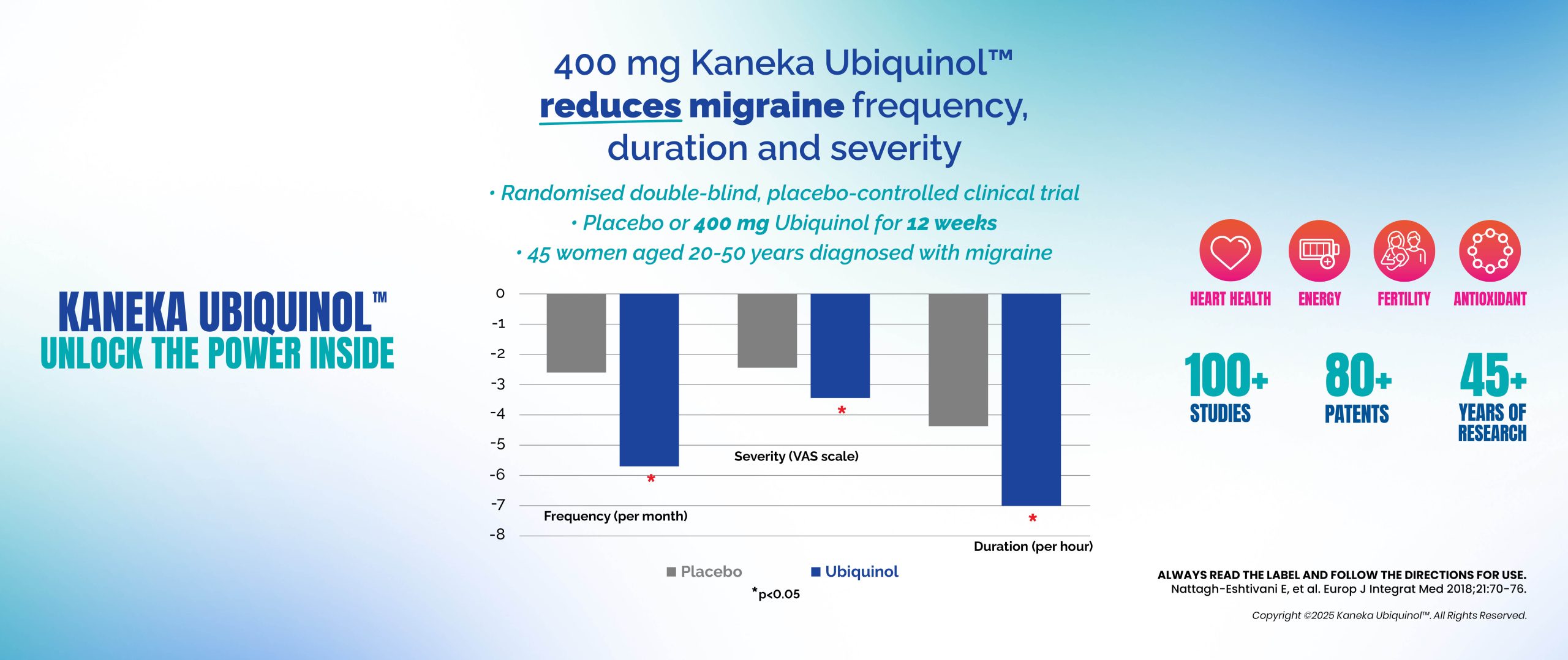
Ubiquinol: Supporting Migraine Relief Through Cellular Energy
Jan 2025Category: Antioxidants, complementary medicine, Energy, Fatigue, Health, Health Industry, healthy ageing, Kaneka, Mitochondrial health, Nutrition, Stress, Ubiquinol, Vitamins, wellnessRead More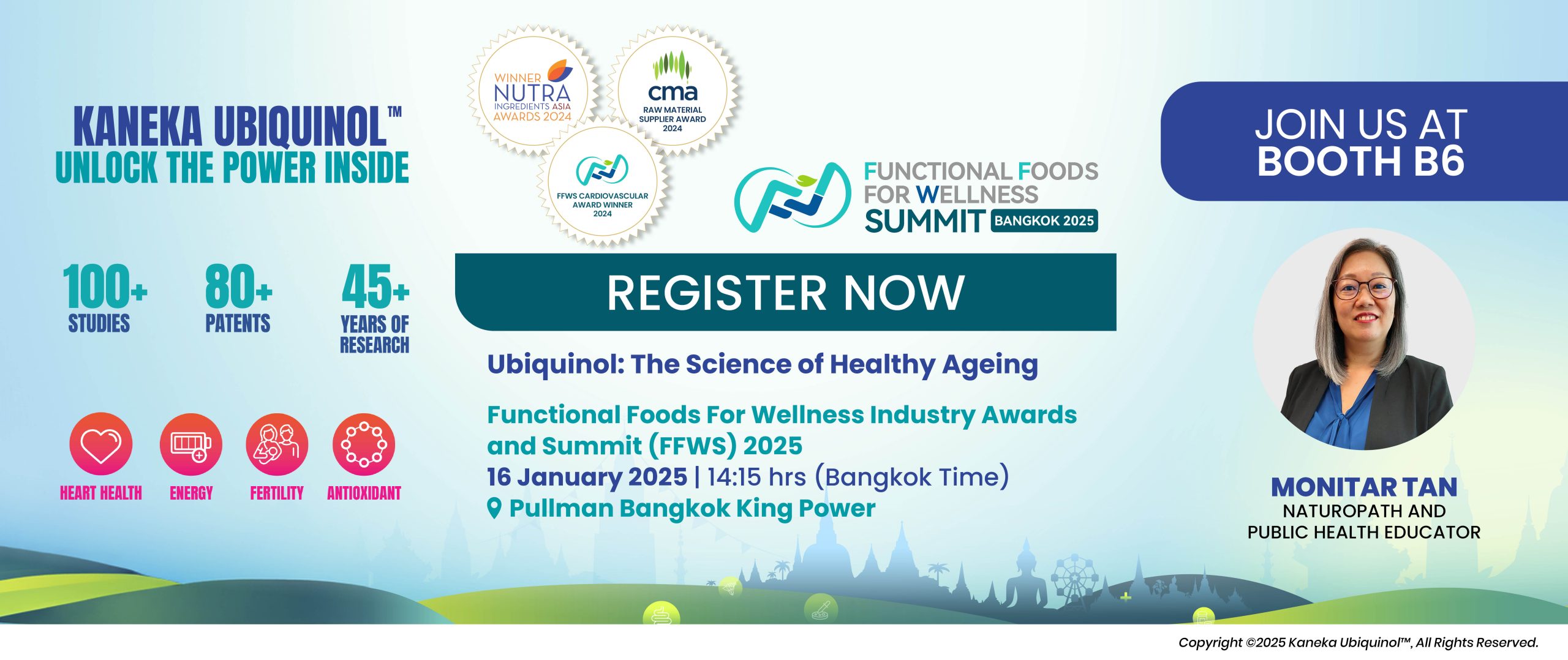
Kaneka Ubiquinol™ at Functional Foods for Wellness Industry Awards and Summit, #FFWS2025
Jan 2025Category: Ageing, Antioxidants, Awards, cardiovascular health, Conference, Conferences, Energy, Fatigue, FFWS2025, Health, Health Industry, healthy ageing, Kaneka, Menopause, Mitochondrial health, Nutrition, Ubiquinol, VitaminsRead More
Kaneka Ubiquinol Wins Prestigious Complementary Medicines Raw Material Supplier of the Year Award 2024
Dec 2024Category: Ageing, Awards, cardiovascular health, complementary medicine, Conference, Conferences, Endurance, Energy, Fatigue, Fertility, Fitness, Health, Health Industry, healthy ageing, Heart, Immunity, In The News, Kaneka, Lungs, Memory, Mitochondrial health, Nutrition, Online, Stress, Ubiquinol, Vitamins, wellnessRead More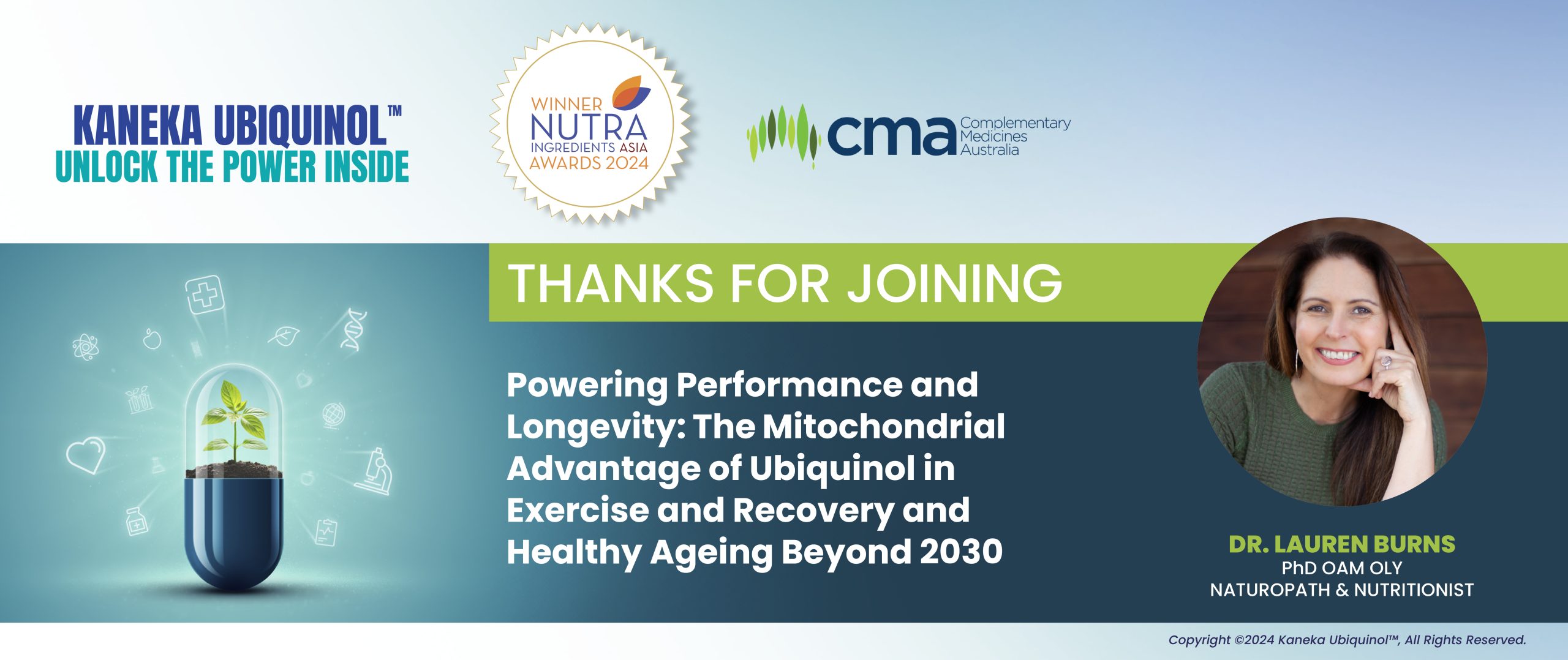
“Powering Performance and Longevity: Kaneka Ubiquinol™ at the CMA Annual Conference 2024”
Nov 2024Category: Ageing, Antioxidants, Awards, cardiovascular health, chronic fatigue syndrome, complementary medicine, Conference, Conferences, Endurance, Energy, Fatigue, Fertility, Fitness, Health, Health Industry, healthy ageing, Heart, In The News, Kaneka, Mitochondrial health, Online, Ubiquinol, VitaminsRead More
Natural Health Product Innovation Expo 2024
Nov 2024Category: Ageing, Antioxidants, cardiovascular health, Cholesterol, chronic fatigue syndrome, Conference, Conferences, Endurance, Energy, Fatigue, Fertility, Fitness, Health, Health Industry, healthy ageing, Heart, Kaneka, Menopause, Mitochondrial health, NHNZ, Nutrition, Stress, Ubiquinol, Vitamins, wellnessRead More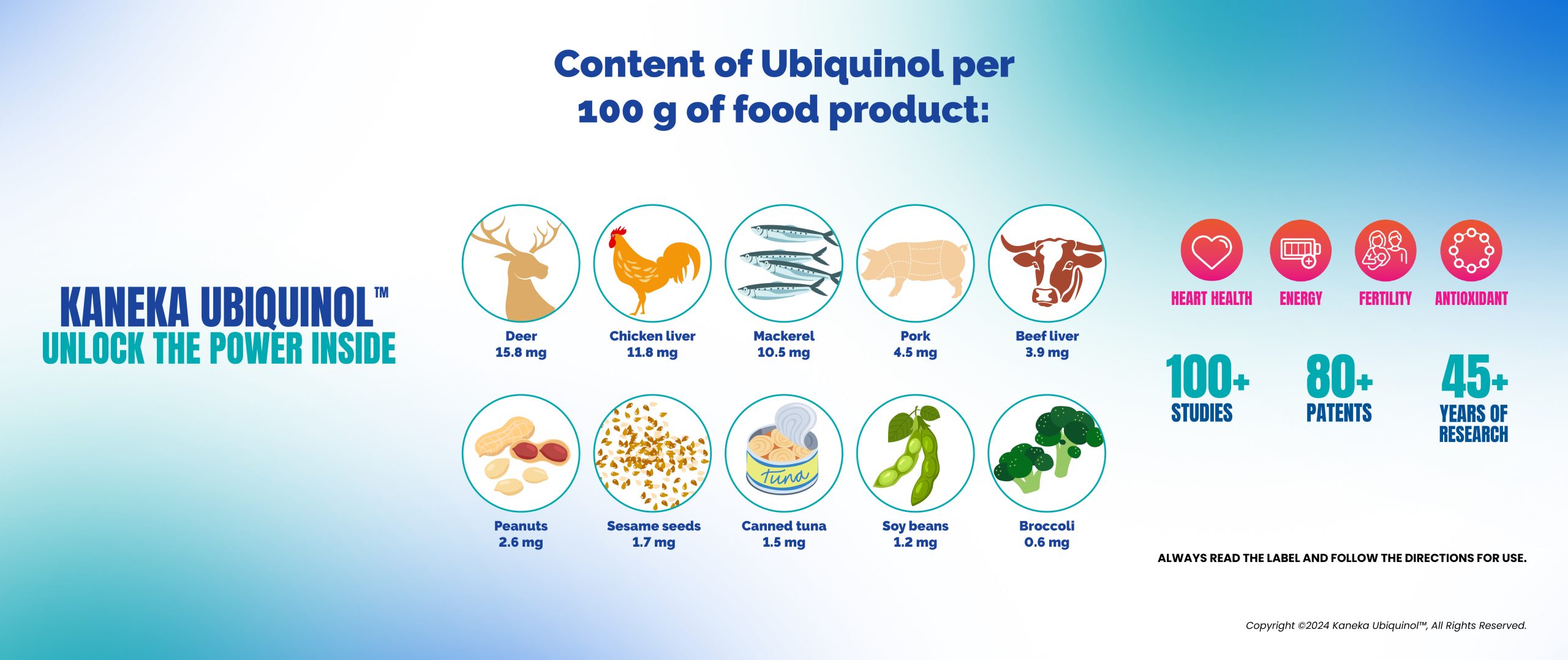
Ubiquinol: The Overlooked Nutrient for Vegans and Vegetarians
Oct 2024Category: Ageing, Antioxidants, Cholesterol, complementary medicine, Endurance, Energy, Fatigue, Fitness, Health, Health Industry, healthy ageing, Heart, Mitochondrial health, Nutrition, Stress, Ubiquinol, vitafoods, Vitamins, wellnessRead More
Investigating the Application of Ubiquinol in Mitochondrial Function
Oct 2024Category: Ageing, Antioxidants, cardiovascular health, Cholesterol, chronic fatigue syndrome, Endurance, Energy, Fatigue, Fertility, Fitness, Flu, Health, Health Industry, healthy ageing, Heart, Immunity, In The News, Kaneka, long covid, Lungs, Memory, Menopause, Mitochondrial health, myalgic encephalomyelitis, Nutrition, post pandemic, Stress, Ubiquinol, Vitamins, wellnessRead More
